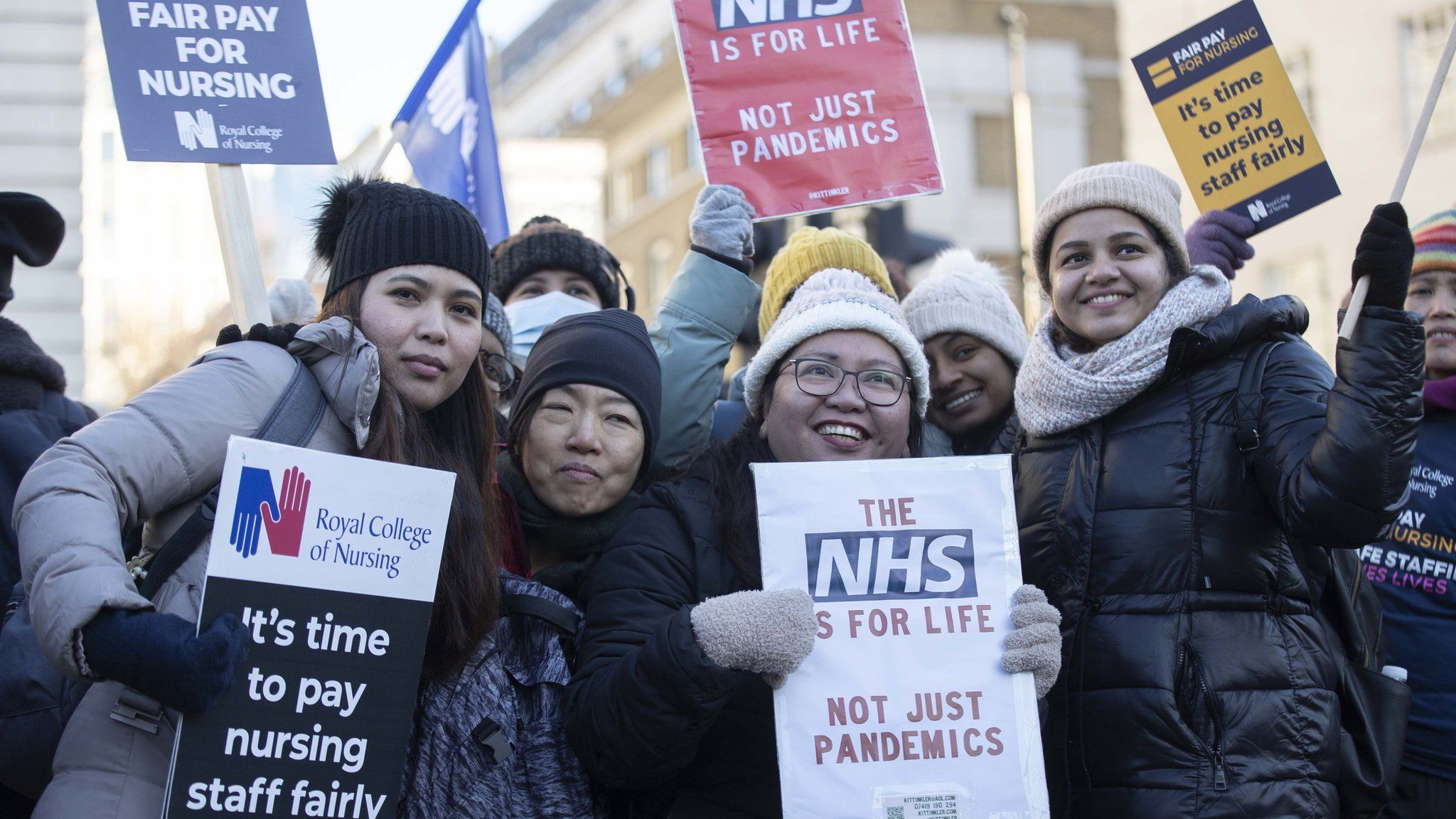ARTICLE AD BOX
 Image source, Getty Images
Image source, Getty Images
NHS nurses are on strike across the UK
Speaking about nurses striking over pay, Health Minister Maria Caulfield said that it would cost the government £700m to increase pay by 1%.
Ms Caulfield made the claim on BBC Breakfast and Radio 4's Today programme in relation to nurses in England, with health being a devolved matter. But was it accurate?
When discussing the nurses' strike, Health Minister Maria Caulfield told presenter Nick Robinson on Today "for every per cent we would have to put pay up that's £700 million we would have to find".
This is not correct when applied solely to the nurses' pay dispute.
The £700m figure comes from the NHS pay review report that describes how much money would be needed to fund a pay rise for a much larger group of NHS workers in England and not just nurses.
In it, the Department of Health and Social Care said that each additional 1% of pay for the "non-medical workforce" costs around £700 million per year.
The "non-medical workforce" in the NHS includes nurses, but it covers a much larger group of workers including scientists, porters, administrative staff, physiotherapists, radiographers, ambulance staff and management.
There are about 320,000 nurses in England.
NHS data on staff in England shows that non-medical staff - excluding nurses - make up about 378,000 people working in hospitals and communities.
So the cost of a 1% pay rise quoted by Ms Caulfield does not apply to nurses' pay alone but covers more than twice as many staff in the NHS in England.
In the same interview, Ms Caulfield also said that a 1% pay rise would cost £800 million but the Department for Health and Social Care later clarified that she misspoke.
On the pay dispute with nurses, health and social care secretary Steve Barclay said that "we have accepted the recommendations of the independent NHS Pay Review Body in full to give nurses a pay rise of at least £1,400 - on top of a 3% pay rise last year when wider public sector pay was frozen.
"Further pay increases would mean taking money away from frontline services at a time when we are tackling record waiting lists as a result of the pandemic."

 2 years ago
63
2 years ago
63








 English (US) ·
English (US) ·